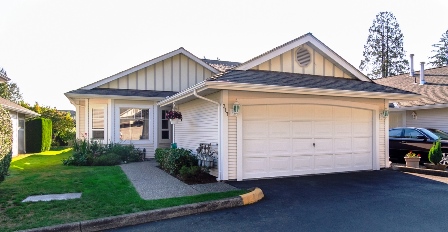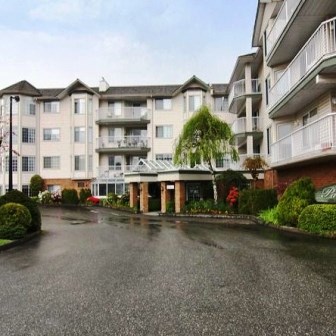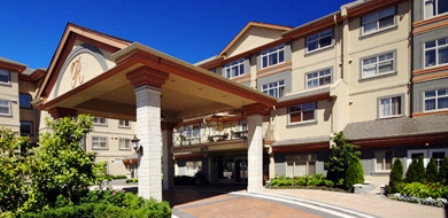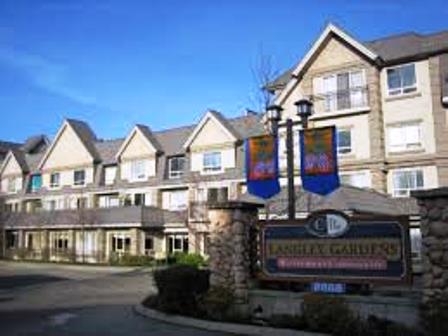Introduction:
As time marches on our lives change and so to do our housing needs. Usually when we are younger we strive for a larger home/ property with more space and possibilities. Eventually as you get older that wonderful large home that you enjoyed for many years may become too large to suit your needs and the maintance and upkeep of you home may begin to seem like to large a task.
Additionally, after retirement you may choose to travel and not want to have to worry about who will take care of your home when you are away. Another consideration is that although we all hope you be in good health even in our latter years the reality is even if we stay in decent health eventually things such as stairs and uneven surfaces can become a problem for older home owners. That’s why for our Blog article this week we would like to talk about housing options for seniors.
Over the years we have helped many seniors through the process of planning out their retirement housing needs so we are writing this short article as a service to our clients and potential clients who are considering what sort of housing they need in their golden years.
Deciding on the housing option that will suit you best in your golden years is often a process. This process may take several months or even years. In the end what is important is that you are able to choose the option that best suits your health, life style and financial needs.
What is your current Home worth?

There are a number of factors that go into the process of choosing your retirement housing options. The first such consideration is financial planning. To start you should determine is what your current home worth. This is an important first step because for many people a good portion of their retirement wealth is tied to the value of their home and as a result the value of their home determines the housing options available to them. If you are would like to determine the value of your current home we would be happy to assist you even if you are just planning for the future and are not ready to sell yet.
Determining Your Lifestyle requirements:
The next part of the process planning your retirement housing needs is to look at your lifestyle requirements and their associated costs. For example:
1.) What type of care will you need and what is the cost of that care?
2.) What will your retirement income be or need to be?
3.) Estate Planning: do you want to leave money/assets to your heirs?
4.) Where do you want to live? Is there an area that is close to family you would prefer to live in?
After answering all of these questions you will be in a position to examine your housing options. So what are your options?
Option 1: Adult oriented complex/ community
A typical 1 level townhome in an adult oriented community

An Adult Oriented Apartment Building

If your health is fairly good and you may want to consider an adult oriented apartment or townhouse complex.
There are a number of nice gated adult oriented communities in in Langley that offer senior friendly townhomes. Additionally there are also some nice adult oriented apartment buildings that are certainly an option for seniors.
An important thing to consider when you are looking at this option is whether or not you require care assistance (such as a nurse or care aid) on a daily or weekly basis. There are certainly government programs that can provide you with a very decent amount of care/assistance as well as some private companies that also offer care aids. Generally the cost of government provided in-home care is based on your income, meaning of you have a large income you will pay more than if you have a smaller income.
If you have mobility of other health challenges there are other options besides an adult oriented townhome or apartment. The next option is an independent living community:
Option 2: Independent Living Community
An example of an independent living community

Independent living communities are available both with and without care assistance. Independent living facilities offer apartments, along with meals or meal plans, laundry, housekeeping, concierge services, handyman services and usually the option for care on a pay for use basis. Most are based on a rental for the apartment; however, some also offer the opportunity for ownership of the apartment.
If you think this option could be for you the next question is, should you rent or own an apartment in an independent living facility? Here are some things you should to consider:
Renting:
Some advantages of renting…
-With independent housing your housing is integrated with a number of other factors such as: food, staff, entertainment, care and more. The benefit to renting therefore, is that you will have the opportunity of determining whether the overall experience is to your satisfaction prior to your final decision. With this in mind I would highly recommend renting at least for a while before making your final decision.
-The benefit to renting on an ongoing basis is simply that although the housing is what it is, staff can change and along with the changes so can the care and the food. Renting allows you the flexibility to switch to other facilities should you decide you are no longer happy.
-Bear in mind that it has been the experience of many of our clients that have gone through this it takes at least six months to get used to a facility. Also bear in mind that no facility is perfect and often if you are not happy with something about the facility you are in that there are often benefits to working with staff to correct it rather than simply changing.
Some disadvantages of renting…
-The disadvantage to ongoing rent is that typically rents increase overtime and therefore your housing costs can go up as does your need for additional income.
-The other thing to consider with renting on an ongoing basis is that the income necessary to pay the rent may be taxable depending on your tax situation whereas with ownership providing you purchase without a mortgage you will need less income to sustain your living expenses and therefore your tax burden may be lower. When we were exploring this for our parents giving consideration to all of the factors they felt it was best for them to rent on an ongoing basis and we have found fianncial planners to be very helpful in working together with our accountants to structure a solution which mitigated the taxes payable on the income necessary to pay for their living expenses.
Ownership:
Some advantages of ownership are…
-Ownership allows you to fix your housing costs. The cost of food and care may still go up but the costs of the housing portion of your requirements is fixed and again if you own clear title the need for additional income and the tax burdens associated with it are a non-issue.
-The other benefit for ownership is that at the end of when you will be staying in this location you or your families owns the property and are able to sell the property at whatever the current market value is at that time. An accountant or financial planner can help you determine whether there are greater benefits in investing in the housing or other investments that may yield a greater return if this is the only decision in determining whether to buy or rent.
Some disadvantages of ownership are…
The disadvantage to ownership is the lack of flexibility. This disadvantage goes both to the choice of the facility you will be moving to originally as well as to the ease of moving should you not be happy with some facet of your living situation. Not all independent living communities offer the option to purchase and therefore if one desires the option to purchase it does limit the independent living communities that one can consider.
Whether you decide to rent or own in an independent living facility there are a number of such facilities in the Fraser valley to choose from.
If you feel you may require more care or assistance than either of these options can provide there is another option which is a full care facility.
Option 3: Full Care Facility
An expample of a full care facility

Full care facilities normally provide a room as well as the food and care on an all-inclusive basis. This decision is normally predicated on the care requirements of the individual. There are certainly a few options in the Fraser Valley to choose from in this category.
Downsizing Belongings:
Once you have determined the housing option that will best suit your needs, the next step is usually to downsize in to a smaller home that can serve your current needs. There are a number of things to consider when you are downsizing such as…
Can you downsize yourself?
Can you get help from:
1.) Family
2.) Church or support group
3.) Professional organizer
It is also important to realize that when you are downsizing you will not just be moving your furniture and possessions, you will have to decide which you can/ want to keep and what you must give away or throw out since your new home will likely not have space for all of your current belongings. If this is an area you think you will need to hire a professional we can put you in touch with professional organizers that specialize in helping others downsize.
Choosing Where to Relocate
Determining where to relocate often involves giving consideration to:
A. Near family or friends
B. Near support community
C. Near doctor or other professionals
What Are Your Goals?
The goal is usually to free up equity from your home to provide a simpler life, with your equity
providing both a place to live and income. Additionally, most people desire to move towards a more maintenance free life with options for future care if not immediate care.
Cooperation and professional advise is very important:
This transition often involves working together with family and professionals such as a lawyer, investment counselor/bank, doctors, accountant, realtor and care facilities and support workers to determine the income requirements, formulate a plan, and implement it. The important thing is that you determine what your needs and goals are and then ask each type of professional how you can best accomplish your desired results.
Conclusion:
We have helped many seniors to accomplish their retirement housing needs over the years and if you require any assistance in this process please let us know we would be happy to assist you with the real estate part of determining you retirement housing needs. We would also be happy to put you in touch with other professionals who can help with areas such as downsizing and organizing or estate planning etc… Whatever you retirement needs are we will to help you accomplish your goals. Even of you not ready to move yet we are happy to help you plan for the future. we can be reched through this website or you can phone us directly at 604-882-8384 we would be happy to assist you.
Sincerely,
Doug, Bonnie and David Mitten.
(Mitten Real Estate Team)






Comments:
Post Your Comment: